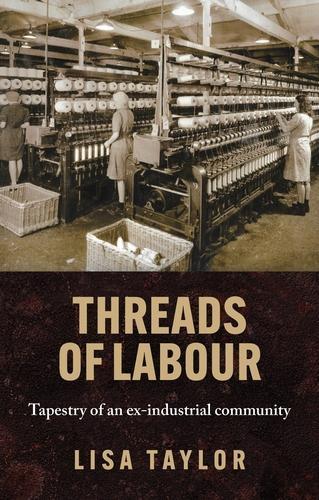
Threads of Labour: Tapestry of an Ex-Industrial Community
(Hardback)
Publishing Details
Threads of Labour: Tapestry of an Ex-Industrial Community
By (Author) Lisa Taylor
Manchester University Press
Manchester University Press
8th October 2025
United Kingdom
Classifications
General
Non Fiction
History of specific companies / corporate history
Social research and statistics
Textile arts and artworks
330.94281
Physical Properties
Hardback
256
Width 138mm, Height 216mm, Spine 16mm
441g
Description
Charting a collaborative art-based project using carpet-making skills and the industrial heritage of the region, the book investigates how a cleaved ex-industrial community used arts methodologies as a cohesion strategy. Drawing on images from the company's archives, the book mines the history of Firths Carpets Limited, a firm that carpeted interiors across the globe from the mid-1800s. Women's labour and tastes were business critical to the production and sale of Firths carpets. Drawing on the author's personal connection to the village, an ethnographic sensibility and novel research techniques, ex-worker responses to a village radically altered by ruination are explored. Ex-workers felt nostalgia for the dignity of work and a sense of homesickness in a village ghosted by industrial spectres of the past. Threads of Labour argues that left-behind deindustrialised places require acts of social re-making if their communities are to survive.
Reviews
'Deindustrialization is often a violent process that tears apart working-class communities. That is why memory projects like this one are so very important. Bringing together former mill workers and new residents now living on the former mill site, Threads of Labour bridges the social distance by inviting participants into each others lives. The regenerative possibilities of sharing stories are clear to see in this intimate and bittersweet journey. It is a beautifully woven tapestry of felt histories.'
Steven High, author of Deindustrializing Montreal: Entangled Histories of Race, Residence and Class
'This wonderfully written account of the loss of a carpet factory skilfully weaves together the personal, local, regional and national story of the consequences of deindustrialisation. It records former local workers sense making of that loss in dialogue with new members of the community with no memory of industry that made a place. Lisa Taylor brings a passionate and critical eye to bear on an ordinary locality which helps us understand the legacy of an industrial structure of feeling in national politics and sentiment.'
Tim Strangleman, Emeritus Professor of Sociology at the University of Kent, and author of Voices of Guinness
'Lisa Taylor weaves together autoethnography and history to capture the living memory of a small deindustrialised community in West Yorkshire. By listening to the former workers in the once-thriving carpet industry, she manages to make their feelings of loss and dispossession a tool for understanding the industrial past and the changing relationship of people to the places they inhabit. With an impressive palette of research methods, she reminds us how work has shaped values and spaces, personal identities and social relationships. A great piece of scholarship that reads like a novel.'
Gilda Zazzara, Associate Professor of Contemporary History, Ca' Foscari University of Venice
Author Bio
Lisa Taylor is Reader in Cultural Studies at Leeds Beckett University
